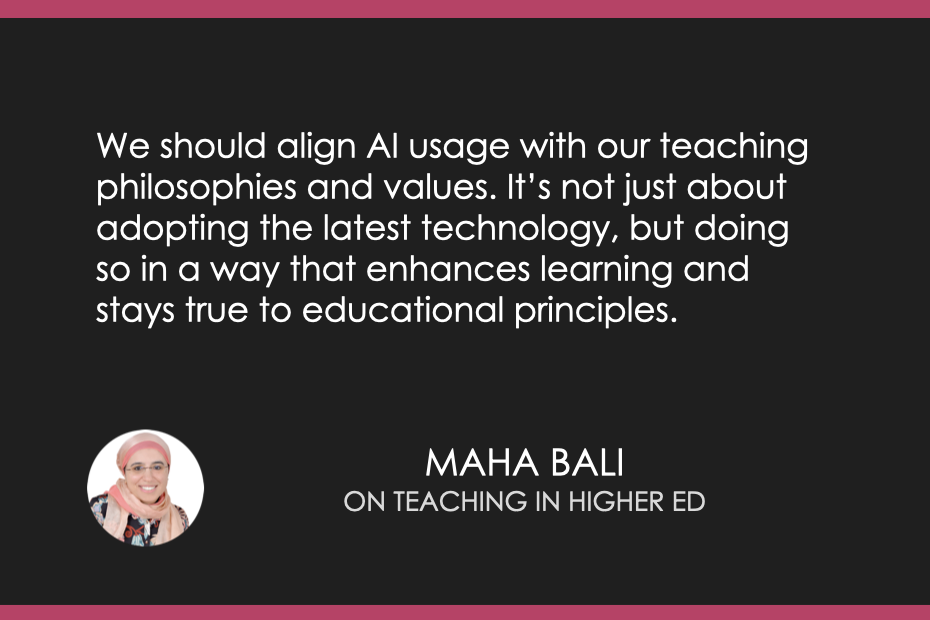
 Teaching in Higher Ed
Teaching in Higher Ed Cultivating Critical AI Literacies
Nov 21, 2024
Maha Bali, a professor at the American University in Cairo, specializes in social justice and critical pedagogy. In this engaging discussion, she emphasizes the crucial role of critical AI literacy in education and the dangers of bias replicating societal inequities. Bali stresses the importance of tracing the sources of AI-generated information and aligning technology use with educational values. She also highlights the ethical considerations surrounding AI and the necessity for transparency and accountability in academic settings.
Chapters
Books
Transcript
Episode notes
1 2 3 4 5 6
Intro
00:00 • 2min
Navigating AI in Education
02:23 • 22min
Navigating Teaching Philosophy and Compassionate Pedagogy
24:39 • 2min
AI in Education: Challenges and Ethics
26:50 • 9min
Evaluations and Bias: A Creative Exploration
35:41 • 6min
Exploring AI in Audio and Education
42:03 • 7min





